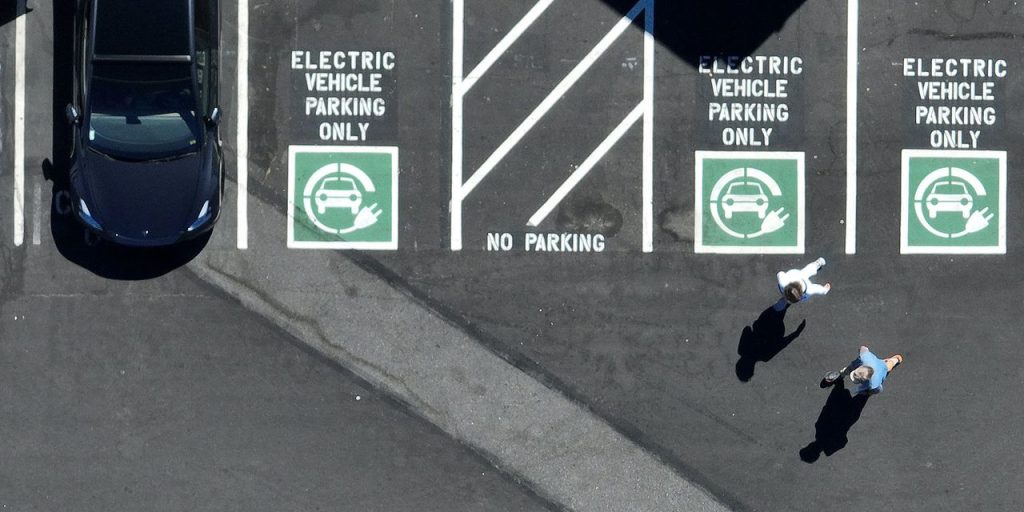American motorists may not be as ready for electric cars as headlines suggest. Recently, Kelley Blue Book surveyed shoppers asking questions about electric vehicles and their desire to embrace this (kind of) new technology. Kelley Blue Book commissioned Atomik Research to conduct an online survey of 2,003 U.S. adults. The margin of error is +/- 2 percentage points with a confidence level of 95%. Fieldwork took place from July 24 to 27, 2023. Atomik Research is a creative market research agency.
Electric car misconceptions
EVs are not new. Car makers began building electric-powered automobiles in the early 1900s. The fuel crisis of the 1970s saw a resurgence in EV interest with vehicles like the CitiCar. General Motors’
GM,
-1.80%
EV1 kicked off the modern era of electric cars with the Nissan Leaf popularizing EVs in the 2010s.
Even though the technology is not new, more choices and complexity have ramped up in recent years. Today, getting a new EV for less than $30,000 is possible. Driving range has improved dramatically. A 250 to 300-mile range is common among the current crop of EVs. One of the survey questions asked about the expected range of a fully-charged EV. Respondents were a little behind in understanding how far an electric car can travel before needing to be recharged. Fifty-two percent of respondents said an electric car could travel 200 miles or less. If you sort that by age, 62% of 18- to 24-year-olds believe a new EV can travel less than 200 miles.
While some electric cars have relatively short ranges, those EVs are rare. For example, the Nissan Ariya, an all-electric midsize SUV, ranges from 205 to more than 300 miles of total driving range. The Ariya is not a small economy car; it’s a comfortable, useful, and attractive SUV. Those results and attributes are common among EVs from automakers like Hyundai,
HYMTF,
-0.69%
Kia,
000270,
Volkswagen,
VOW,
+3.26%
and others.
Also see: Is gas cheaper than electricity to fuel a car? Two studies have conflicting answers.
Reasonable worries
Other EV concerns are more grounded. Nearly 2 in 3 (65%) say global emissions moderately or significantly factor into the purchasing decision of their next car. Interestingly, 63% of those surveyed say a hybrid fits their needs better. Consumers want clean air, but they seem to know there’s more than one way to get there. A lower-emission vehicle could be a battery electric vehicle (BEV) or a hybrid or plug-in hybrid. Forty-five percent of those surveyed say their living environment is “not set up to accommodate an EV.”
Seventy percent say they’re worried about how long it takes to charge an electric car fully.
This is probably the most well-founded concern when it comes to EVs. When shopping for an electric car, there’s lots of data available that says charging an EV takes 30 to 40 minutes. Be sure to read the fine print or the entire statement. Often, that number is to charge an EV up to 80% of capacity.
You don’t refuel your gasoline-powered car to the 3/4 mark; why would you do that with an electric vehicle? The main reason is time. Because of how electricity and battery storage work, filling that remaining 20% of battery capacity might take another 30 minutes. Often, DC fast chargers won’t charge a battery to 100% to avoid damaging the battery. While “range anxiety” might not be a realistic concern, anxiety concerning recharging time is undoubtedly legitimate.
Check out: 18 new EVs to watch for in 2024
Asking the right questions
And charging times are not the only concern for potential EV buyers. Sixty-two percent of those consumers surveyed say they don’t know the right questions to ask when buying an EV. Fifty-eight percent say tax credits are essential in purchasing an EV, but 71% of respondents admit they don’t know how EV tax credits work. To address this, Kelley Blue Book has created an electric vehicle buying guide with the pros and cons of EV ownership.
See: Before buying an EV, consider these hidden costs of ownership
Other consumer concerns surround the cost of battery replacement, weather, and vacation plans.
See more: EVs may lose up to 31% of range in extreme heat, report says
Buyers care about the environment
The good news is that 75% of millennial buyers and 78% of Gen Z buyers say they will consider vehicle emissions when purchasing their next vehicle. How that works itself out isn’t clear. Certainly, more low-emission vehicles are available today than at any other time in our collective motoring history. Today, EVs are about 6% of new car sales. What does it look like if that number is 20%, and 100-mpg hybrids make up another 60% of personal mobility vehicles? There are many options for lower-emission cars; it’s not an “all eggs in one basket” situation.
This story originally ran on KBB.com.
Read the full article here




